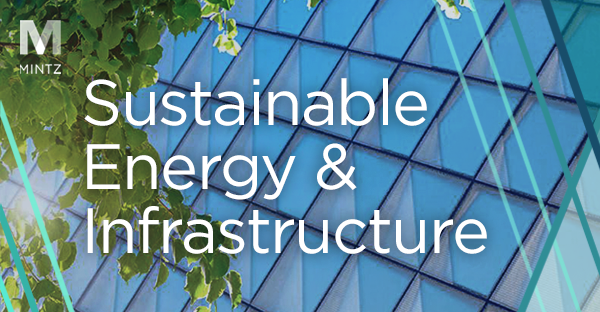Energy & Sustainability Washington Updates - September 2021
Infrastructure Investment and Jobs Act
As reported in our previous Washington Updates, months of negotiation and a great deal of compromise between the White House and bipartisan negotiators on Capitol Hill resulted in a bipartisan $1.2 trillion infrastructure agreement, the Infrastructure Investment and Jobs Act (IIJA). You can find that report by clicking HERE where you will read more about how the legislation impacts energy and sustainability.
Last month the Senate approved the IIJA in a bipartisan vote of 69-32, sending it to the House of Representatives. $550 billion of the funding is new spending including $110 billion for roads, $66 billion for rail, $73 billion for power infrastructure, $65 billion for broadband, $55 billion for water infrastructure, $50 billion for resiliency measures (including cybersecurity), $25 billion for airports, $17 billion for ports and waterways, $11 billion for safety, and $15 billion for low-carbon, zero-emission, and electric vehicles.
Speaker Pelosi has said the IIJA will receive a House vote no later than September 27 as part of Democrats’ plan to move the infrastructure bill in tandem with a much larger “human infrastructure” bill – the Build Back Better Act – through the budget reconciliation process which allows the Senate to forego the 60 vote threshold and pass legislation with only 51 votes.
Build Back Better Act
As we quickly approach the September 27 deadline the House committees of jurisdiction have been aggressively moving to develop their legislative text for the $3.5 trillion budget reconciliation bill.
The House Ways and Means Committee has released their proposed legislative text for tax matters, including an expansive title on Green Energy. As proposed, the green energy language extends through 2031, with phase downs, the Production Tax Credit (PTC) for landfill gas, municipal solid waste, qualified hydropower, marine and kinetic renewable energy facilities, and geothermal. Further, the language increases the PTC for wind to the full applicable credit rate through 2031 and then phases down through 2033; and revives the PTC for solar through 2031 and then phases down through 2033. The Investment Tax Credit (ITC) is extended for solar, geothermal, and other eligible property such as fiber-optic solar equipment, fuel cell property, microturbine property, combined heat and power property, small wind energy property, biogas property, waste energy recovery property, and offshore wind property. The language expands the ITC to include energy storage technology and linear generators. Other provisions include a 30 percent zero emissions facility credit, extension of the credit for carbon oxide sequestration, a credit for qualified nuclear power, extension of excise credits for alternative fuels, a new credit for production of hydrogen, a refundable income tax credit for new qualified plug-in electric drive motor vehicles, a credit for commercial electric vehicles, and investments in the green workforce.
These are just a few of the many green energy tax provisions proposed. Click HERE to read the Ways and Means Committee draft language.
The House Energy and Commerce Committee has also released its proposed legislative text for budget reconciliation, with sections devoted to air pollution, hazardous materials, drinking water, and energy. The committee’s proposal would invest $150 billion in a new Clean Electricity Performance Program at the Department of Energy, $13.5 billion in electric vehicle infrastructure, $7 billion in loan programs at the Department of Energy to support development of innovative technologies and American manufacturing of zero emission transportation technologies, $5 billion in replacing certain heavy-duty vehicles, $9 billion in energy grid updates, $17.5 billion in decarbonizing federal buildings and fleets, $18 billion in home energy efficiency and appliance electrification rebates, $27.5 billion for institutions that support the rapid deployment of low- and zero-emission technologies, $2.5 billion for planning and installing solar facilities and community solar projects that serve low-income housing or multi-family affordable housing complexes, $30 billion for full replacement of lead service lines in drinking water systems, $10 billion for cleanup of Superfund sites, and $5 billion for community-led projects that address environmental and public health harms related to pollution and climate change.
Read more from the House Energy and Commerce committee by clicking HERE.
The budget reconciliation process will be partisan, with no Republican votes expected in support. This leaves House Democrats with a very narrow margin for success, since they can only afford to lose three votes. In the Senate, the margin is even closer with the chamber evenly split between the two parties. Sens. Manchin (D-WV) and Sinema (D-AZ) have expressed deep concerns with the size and scope of the reconciliation package and without them it cannot pass. Negotiations are currently underway to reach a compromise that can placate the two Democratic senators while not endangering the votes of progressive Democrats in the House who want to see an expansive bill passed.


